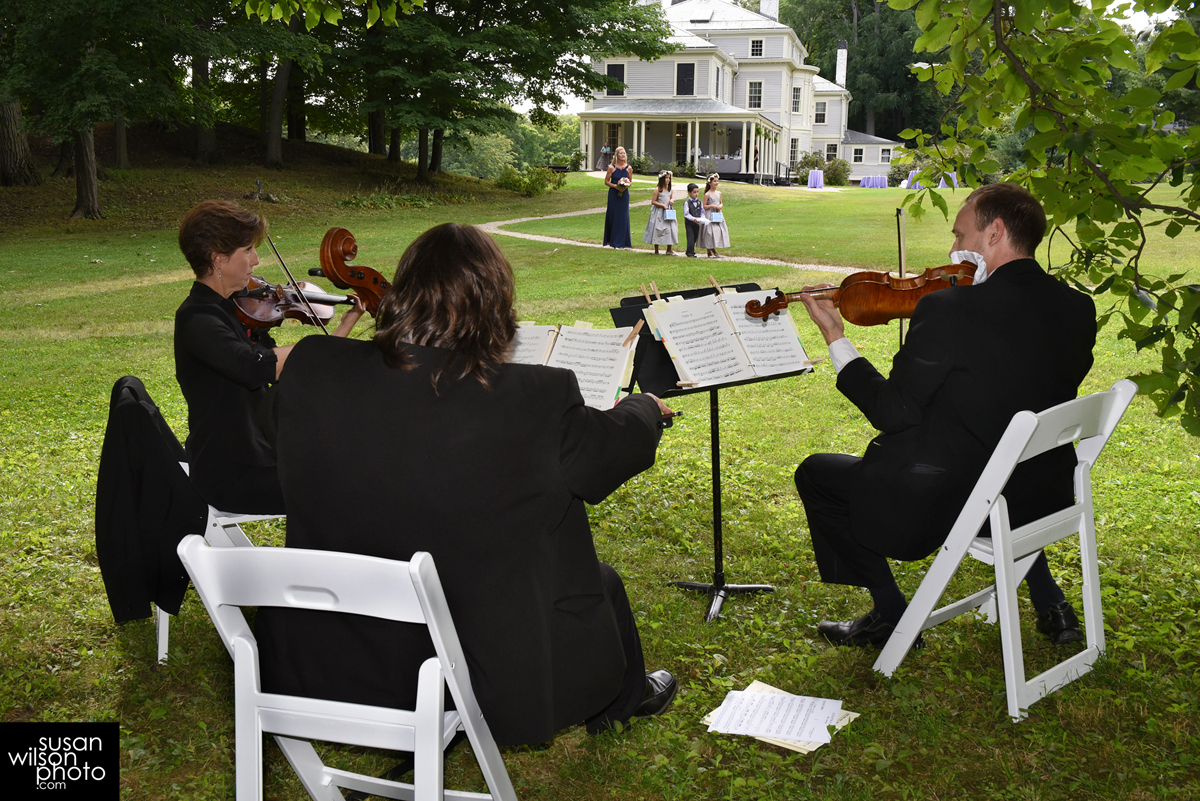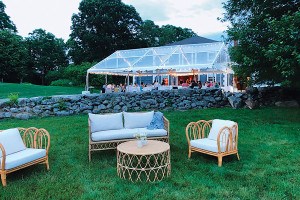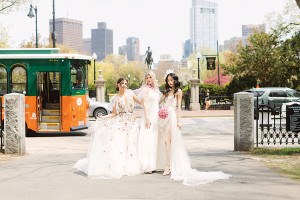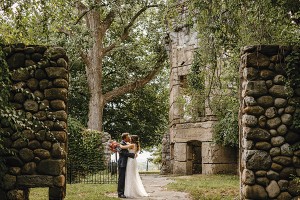How to Use Live Classical Music for Your Wedding

Photograph by Sue Wilson Photography
Serene and elegant—that’s the mood you want to set for the beginning of your wedding. And what better to convey that feeling than an ensemble of classical musicians? Imagine guests taking their places for your grand entrance and nuptials, the sounds of distant violins floating on the breeze. Sigh.
Rebecca Strauss knows that scene well. She and her fellow Riverview Chamber Players have been creating it for brides and grooms for the past 21 years. As music director and founder of the group, she gives us her thoughts on how to approach having classical music for your wedding. Consider this your prelude to a kiss.
How should a bride and groom work with the musicians to start the process?
It’s first important to let the music director know about the elements of your ceremony and your vision—the location (outdoor or indoor), size of the wedding party, number of guests attending, desire for a religious or non-religious ceremony, and any special music requests the couple has. Once the music director has this information, she can guide the client in choosing an ensemble that’s best suited to the event.
How should a couple choose the musical selections?
Selecting music is based on a number of factors—the ensemble hired, the feeling/mood the couple wants at the wedding, and any specific pieces that have meaning and importance to the couple. Location actually doesn’t affect the music selections as much as the ensemble choice. For example, if a wedding is taking place outside on a beach, a string quartet would not be an appropriate ensemble, but a brass ensemble with trumpets, trombones, and horns might be. On the flip side, if a ceremony is taking place in a small room in a historic estate, a string trio would be a much better fit than a large brass group.
When should the music begin before the ceremony actually starts?
RCP usually plays about a half an hour of music before the ceremony starts. Having music performed as the first guests first arrive sets the mood and feel for the ceremony. We typically choose most of the music selections for this time, but will incorporate specific pieces that are requested by the wedding couple. Depending on the length of the pieces, RCP usually performs between 10 and 20 different pieces.
What are the must-have elements?
The number of pieces needed for processionals depends on the number of people in the wedding party. Sometimes we perform up to four processionals (one for the officiant, one for the family, another for the bridesmaids, and another for the bride or wedding couple). For small weddings, RCP may only perform one processional that includes just a matron of honor and wedding couple, for example. RCP also performs music for interludes if the couple would like that. RCP’s music director works directly with the couple to create a music program that complements their ceremony in a seamless and beautiful manner.
What stories do you want to see in
Boston Weddings? Send us tips at weddings@bostonmagazine.com.
Getting married? Start and end your wedding planning journey with Boston Weddings' guide to the best wedding vendors in the city.


